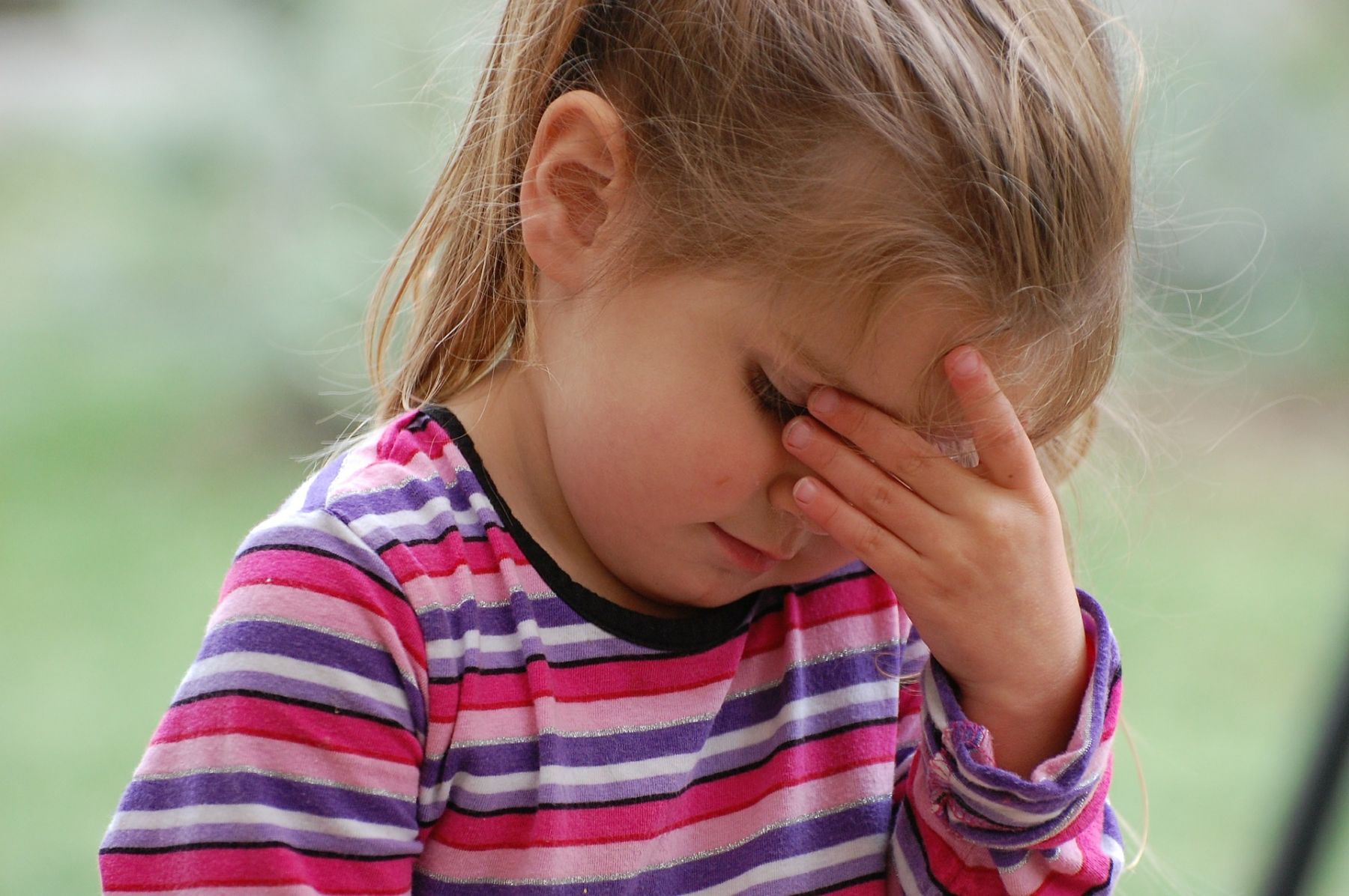By Lisa Hartwig
Lisa is the mother of 3 gifted children and lives outside of San Francisco.
Which of the following is a symptom of anxiety in a gifted child?
a. An eye twitch
b. Pacing in circles
c. Fighting with her mother
The answer?
All of the above.
The eye twitch and the pacing were easy for me. My oldest son’s eye began to twitch in fifth grade, around the same time he started to disengage at school. Our middle child began pacing in circles around the bathroom in second grade. That was the year that his teacher wrote his name on the blackboard with the word “teacher” before it because she thought he was too bossy.
My daughter is the one who fights with me. She is in an ideal educational environment. We fight because I am annoying.
If you met my daughter, you would find her to be an adorable, Justin Bieber-loving 11 year old. And she is. She is also super critical of me. According to my daughter, I clear my throat excessively. I use the word “sweetie” when I’m irritated and I make squishing noises when I chew. When I do these things, she tells me to stop. Sometimes she even imitates me.
My daughter’s need to correct me leads to terrible fights. I can’t understand why she won’t overlook my annoying behavior. She doesn’t know why I keep doing things that irritate her. Usually, I just walk away. That enrages her. She hates it when I walk away.
I don’t tell many people about my daughter’s criticism because it makes both of us look bad. It’s disrespectful. It’s insensitive. It’s evidence of my bad parenting skills. And, according to a psychiatrist I know, it’s a symptom of high anxiety.
About a year ago, I was talking with a psychiatrist about anxiety issues of my own. She went down a laundry list of symptoms. At one point she asked me if I get annoyed easily. I said no, and she seemed surprised. She said that highly anxious people are often irritable. Then I remembered my daughter. I thought about how she hates it when her younger brother cracks his knuckles, when her older brother chews ice or when her father talks with food in his mouth. It occurred to me that my daughter is irritable because she is anxious.
I am the first to admit that I might be fooling myself by thinking that my daughter’s behavior reflects anxiety instead of permissive parenting because I don’t want to take responsibility for the behavior. Having said this, I can’t escape the genetic component of her anxiety. After all, I’m anxious, and so is my husband. Our sons? Anxious and anxious. Any genetic predisposition she might have received was certainly nurtured by my anxious parenting.
Okay, maybe I lied to the psychiatrist. Sometimes I am irritable. Early in our marriage, I told my husband what to do when I behave this way. When I am at my most unlikable, what I really need is a hug. I need some physical reassurance that I am not bad despite my bad behavior.
We tried it with our daughter. Or more accurately, my husband tried it. In the middle of a particularly bad fight, he waited for her to catch her breath and then asked her if he could give her a hug. Surprisingly, she said yes. Eventually, she would ask for a hug after she made a snarky remark but before we would get into a full blown fight. Those were hard hugs for me to give. It seemed like I was rewarding bad behavior. It did, however, prevent the fight and hasten an apology from her. She always expressed genuine remorse for her behavior after we fought.
I found support for our hug therapy in a blog by Dr. Claudia M. Gold, a pediatrician and author of Keeping Your Child in Mind: Overcoming Defiance, Tantrums, and Other Everyday Behavior Problems by Seeing the World through Your Child’s Eyes. According to Dr. Gold, this behavior has to do with the underdevelopment of the higher cortical centers of the brain. Our daughter didn’t experience early trauma, nor does she have sensory processing problems like the children discussed in her blog. She is, however, intense and highly sensitive like many gifted children. She has almost all of Dabrowski’s overexcitabilities. The way she externalized her intense nature felt like a personal attack, but it was no different from the boys’ eye twitching and pacing.
I can’t say that I’m entirely at peace with the way our daughter expresses her anxiety, and if I’m wrong and I am a poor parent, please don’t tell me. I have found a solution that involves holding my daughter close and giving her a squeeze. My hope is that the memories of the fights will disappear and what she will remember are the hugs.
In what ways do your children exhibit anxiety? How do you handle these expressions of anxiety? Please share with us in the comment section below.
Like this post? Please share!

